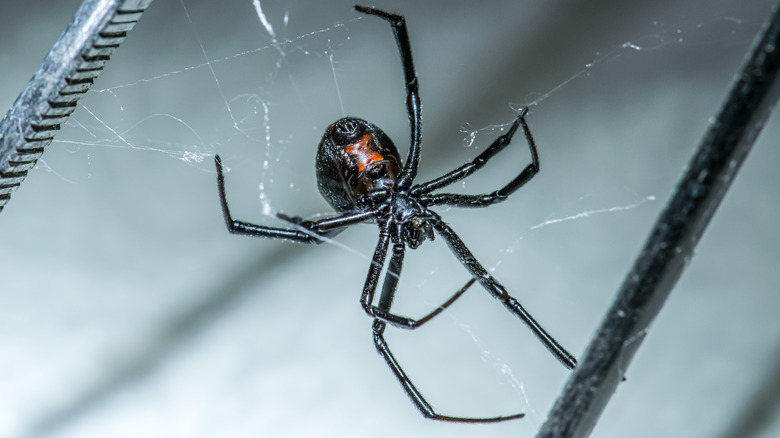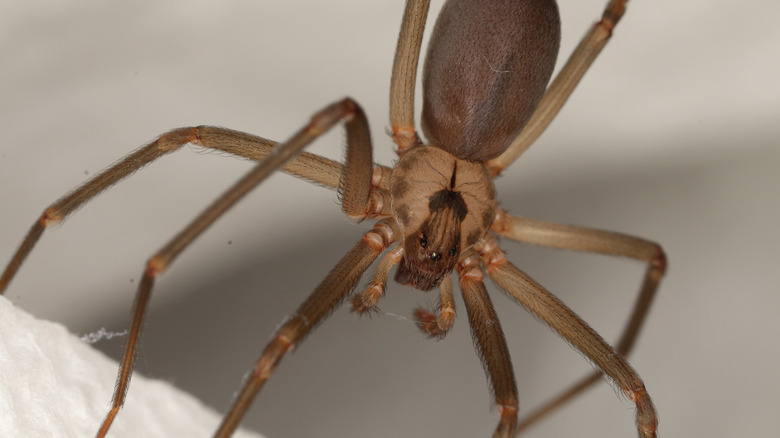How To Tell If A Spider Bite Is Venomous
The U.S. is home to over 3,500 spider species. Although most spiders carry venom and use it to catch or attack their prey, most of them aren't dangerous to humans — either because their venom is not powerful enough to hurt a grown person or because their fangs aren't strong enough to break human skin. In most cases, a spider bite feels about as bad as a mosquito bite (per Illinois Department of Public Health).
There are two types of spiders in the US that are very dangerous to people: the black widow and the brown recluse. A bite by either one of these requires immediate medical assistance, according to the Centers for Disease Control and Prevention (CDC).
The bite of a black widow spider is especially dangerous for some people, including very young children and the elderly (via Washington State Department of Health). People with a compromised immune system might also be at a higher risk of suffering more severe side effects. If you think you've been bitten by a black widow or brown recluse, you should call 911 or seek emergency help — no matter what symptoms you're experiencing at the moment.
If you didn't see the spider or aren't sure, things are a bit trickier, as even the bite of a dangerous spider usually only shows mild symptoms like redness and swelling at the beginning, according to Mount Sinai Hospital.
Symptoms of a venomous bite are hard to miss
After the initial mild period, symptoms will continue to worsen and the pain will intensify and spread to muscles — mostly to the abdomen (for bites in the lower body) and the chest (upper body bite) — if you've been bitten by a recluse or a black widow spider. Intense pain is always a sign that the spider bite is venomous (via Mount Sinai Hospital).
Other symptoms that indicate the bite is from a venomous spider include a rash, muscle cramping, nausea and vomiting, and fever. Some people might experience an elevation in blood pressure after a bite, while others might have headaches or chills.
More serious symptoms can include difficulty breathing, facial swelling, and seizures. The site of the bite and the muscles around it can become painful, and some people also experience numbness around the site. Pregnant women should seek emergency care after a spider bite, as some can cause contractions and premature labor.
Although it's technically possible you might die from a spider bite, this is very rare today, according to Livescience. There's effective antivenin available for black widow spider bites, so seeking treatment quickly means you'll likely be fine. Unfortunately, there's no antivenin available to treat the bite of a brown recluse. While death is unlikely, the venom could potentially cause a systemic reaction in the elderly, ill, or in very young children.
To avoid complications, you should always seek help if you experience anything more than mild pain after a spider bite.


